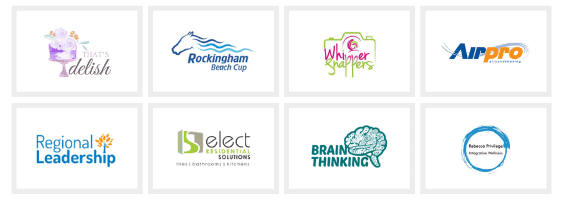Critical SEO Metrics to Measure
There are total newbies reading this, and some who have more insights, so I’ve broken this down into 2 sections. One for simple (relatively) and one for more advanced.
Even if you read it so you get the ‘gist’ of this ‘stuff’.
All the SEO effort in the world amounts to nothing unless it actually brings you traffic.
Here’s an overview of what is important to track.
SIMPLE:
1) Organic Sessions
Tracking your organic sessions is one of the strongest indicators of SEO performance.
A session is defined as a visit to the website, the actions taken by the user during that visit, and then the exit of the user from the site.
If a user doesn’t take an action, their session will time out after 30 minutes of inactivity, by default. A single user can be responsible for multiple sessions.
A month by month increase in visitors through the search engines shows that your rankings are improving (even for keywords you weren’t targeting).
This metric shows you quantifiable proof that your SEO efforts are actually bringing in more visitors.
The quality of the traffic, of course, will depend on which keywords you’re ranking for.
By landing page:
Overall organic traffic is sitewide. You also need to track organic traffic by landing page. Why? Because that’s how you can determine where you need improvement.
By location:
Track where your organic traffic comes from. If your business is local, only your country traffic is valid.
2) Keyword Rankings
Should you even bother tracking keyword rankings?
Yes.
Tracking keyword rankings tells you two things:
- The general direction of your SEO efforts. Better rankings for one keyword usually indicate improved rankings overall, especially for related long-tail keywords. Tracking keyword rankings show you the effectiveness of your current SEO plan.
- Keyword selection. If other SEO results improve (such as domain authority or organic traffic) but your target keyword rankings don’t improve, it could be poor keyword selection. In such a case, you should choose a less competitive keyword and try to rank for them first.
3) Bounce Rate
Bounce rate is a metric that measures the percent of sessions where the user goes to your website and immediately exits without performing any action.
A typical bounce rate is between 40 to 60 percent, meaning about half of all sessions are expected to end with no action taken. But this will vary greatly depending on your industry/niche.
Bounce rate is an important KPI because the Google algorithm is based on satisfying the user’s search query.
When we search a keyword, Google wants to show us the most relevant and highest quality results possible that resolve our issue.
If say a user is on a desktop, they go to your website, but then phone using their phone, because there was no interaction on the website, that registeres as a bounce.
When we leave a website with no interaction, it can indicate that the website is not relevant and doesn’t solve our problem.
At the opposite end of the spectrum, a low bounce rate indicates that your site is a winner, and peeps are engaging with it.
4) Local Visibility
You need to track specific metrics to ensure your organic traffic is coming from the right audience.
You can do this by tracking a few key local SEO metrics:
Google My Business Insights: Setup the Google My Business (GMB) Insights report to track how often your GMB page appears in search results, number of calls, and directions.
Google Maps Rankings: Check your Google Maps rankings in ‘Incognito’, as well as your Google 3 Pack results for your business location. There are paid rank trackers, or we can run a report for you.
Session Location: See what cities your web sessions are from, no use having visitors from Russia count (unless your market is in Russia).
Specifically, is your site appearing in the Local Google 3 Pack for keywords related to your niche?
Is it appearing when people type the name of your town or city plus the name of your industry?
If not, it’s time to work on some local SEO.
5) Mobile traffic & rankings
Is your site ranking as well on mobile search as it is on desktop search?
With Google’s now operating on a ‘mobile-first’ index, optimising for mobile is more important than ever.
Keeping track of your mobile traffic can indicate:
Mobile-friendliness issues: Google prefers mobile-friendly sites in its mobile search results. You can run a mobile-friendly test here > https://search.google.com/test/mobile-friendly
Usage patterns: If your mobile traffic is increasing, it could mean your target audience habits are evolving. This can tell you whether you should invest more in mobile development (such as mobile optimisation).
Mobile-only search terms: Mobile search is different from desktop search. For instance, 20% of mobile searches are voice only. Mobile users also tend to use fewer keywords than peeps on desktops. Tracking mobile traffic shows whether you’re ranking for these mobile-only search terms.
As SEO has become more sophisticated, measuring SEO success has become harder as well.
To tell the true story of your SEO efforts, you need to track multiple metrics, everything from backlinks and rankings to engagement and conversions.
Smart Actions:
1) Make sure you have Google Analytics Tracking enabled on your website.
What you DO want is historical data, evidence on what it WAS before you play with SEO, or engage someone to do SEO. Having Google Tracking proves whether results have been achieved, or not. Make sense?
2) Action what you can to your knowledge level
3) Ask for help just to get some of this setup, start somewhere…
Get an ‘On Page’ SEO Report >
https://www.smarterwebsites.com.au/yes/100-days-on-page-seo-report/
Get a ‘Google My Business’ Report >
https://www.smarterwebsites.com.au/yes/100-days-google-my-business-seo-audit/
=================================== horizontal line
ADVANCED:
6) Organic Conversions
Now that you see organic traffic coming in, what is the quality of that traffic?
Organic sessions alone aren’t enough if you’re getting traffic from irrelevant terms that don’t convert into an enquiry.
To measure the quality of your traffic, track organic conversions.
You’ll need to setup your ‘Goal’ or conversion events in Google Analytics. Examples of goals you may choose to track include:
– Form submissions
– Phone calls
– Making a purchase
– Email signups
By device:
Google Analytics distinguishes between mobile, taBlet and desktop audiences. Why is this important to know?
If most of your traffic is on mobile, investing in mobile tweaks and optimisation could be the best investment ever to boost conversions.
Once you’ve implemented the goals you want to track on your site, it’s easy to monitor them through Google Analytics.
7) New Backlinks and Referring Domains
While on-page factors matter, strong SEO performance is still largely determined by backlinks (weird IMO but true).
To track backlinks, an SEO analytics and backlink tracking tool, we use paid tools, but this will get you started > https://neilpatel.com/seo-analyzer/
ENGAGEMENT METRICS – bounce rate, time on site and pages per visit
First, a few definitions:
– Bounce rate is the number of visitors who left your site without clicking any link. This is expressed as a percentage.
– Time on site is the amount of time visitors spend on your site on average.
– Pages per visit is the number of pages your users visit on average before leaving the site.
These are all ‘engagement metrics’ which show you how your users are engaging with your site.
What’s the difference between sessions and pageviews?
All measure slightly different things:
– Users represent individuals that visit your site
– Pageviews represent each individual time a page on your website is loaded by a User
A single Session can include many Pageviews, if a User navigates to any other web pages on your website without leaving.







